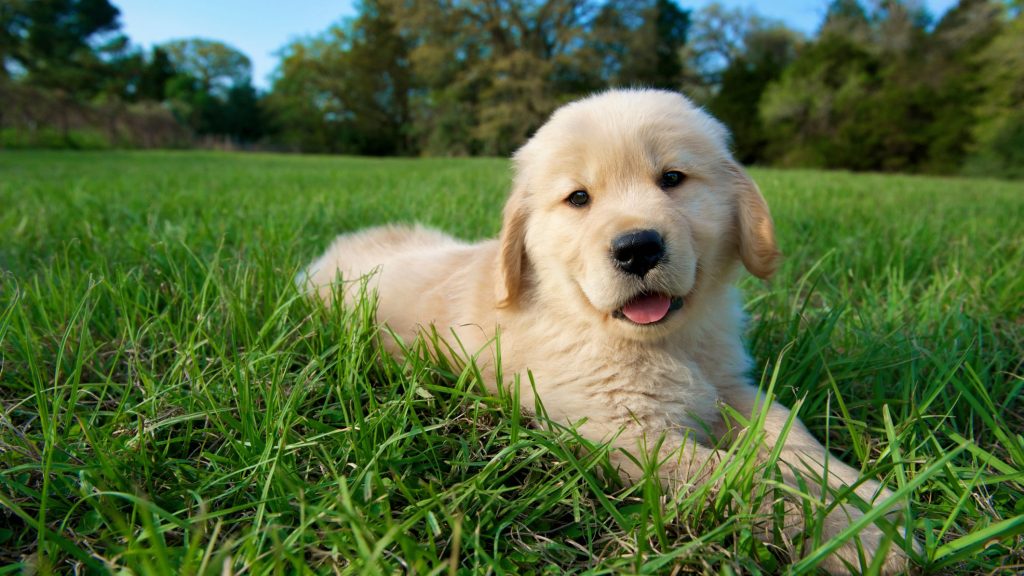When it comes to warm and friendly dogs, golden retrievers are hard to beat. Since they are used as guide dogs, they are socially accepted in public places. Although they enjoy alone time, golden retrievers are very sociable and can be used as family pets.
Choose the Right Golden Retriever Puppy and Exercise Them
Although many consider Golden Retrievers to be friendlier than Golden Retriever bitches, they do require more exercise and have a tendency to wander. In both cases, Golden Retrievers are loyal and gentle with children. It’s worth considering that unless you plan to breed, golden retriever bitches have a season every 6 months, requiring them to stay away from dogs for three weeks. Initially, a Golden Retriever puppy will get all the exercise it needs from play. From 6 months, you need to start exercising it under its guidance and gradually increase the time it spends exercising until it reaches 18 months. From then on, it needs to be exercised at least twice a day, but it shouldn’t be excessive.
What kind of family is a Golden Retriever suitable for?
Golden Retrievers are very friendly, which means they are social and are great as family pets. However, they also enjoy alone time, which means children should be made aware of not harassing them too much. This means that they may not always be suitable for families with many very young children, although it does depend on whether the parents can create a way for them to split their time. Since they love sports and rely on playtime as their early form of exercise, a good sized garden is essential.
Where to buy your golden retriever
As always, you will want to purchase a Golden Retriever from a reputable breeder. Obtain a locally recognized person or attend a dog show. Avoid farms where puppies are kept, as they may not have all the tests needed for genetic diseases. (Breeders – please contact us to list your site here!)
Golden Retriever Health Demographics and Disease Profiles
Golden retrievers typically reach 22 to 24 inches, while bitches reach 20 to 22 inches. In both cases, they are fairly heavy and stocky, while dogs are slightly heavier. These dogs tend to gain weight easily, so avoid overfeeding. Also, while they are a healthy breed, they are also prone to the following diseases:
Heart disease
- Congenital eye defects
- Hip dysplasia: A deformity of the hip joint that can cause pain and problems with walking comfort
- Von Will brand disease: Blood does not clot properly, resulting in heavy bleeding and bruising after injury
Training
Golden Retrievers are relatively easy to train and can stay loyal as dogs for a long time, so they are used as guide dogs. Compared to many other breeds, they are friendly in public and don’t cause panic. Training from the puppy stage is highly recommended, especially if you want them to be well potty trained and careful at home. If you’re looking for a sociable and friendly family pet, consider a Golden Retriever. While they may do well in an apartment with good exercise, it’s even better if you have a decent sized yard.
Golden retriever and child
If you have a young family, golden retrievers can be great for kids. When properly socialized from an early age, retrievers can be very calm and forgiving. While they usually have a great temperament, it’s best to always supervise your dog and children. As puppies, it is normal for hounds to have a “mouth”, which means they have a tendency to bite. While they’re not meant to be aggressive, it’s best to use positive training techniques to let them know that biting you will hurt and that it’s not a fun game.
That way, when they’re adults, they’ll know it’s not a good way to play with humans or other dogs. Always supervise children and vulnerable adults with your golden retriever, and make sure you can recognize the signs that your dog is unhappy or anxious to help avoid any conflict. As with every breed, you should always teach your child how to approach and play with your dog with care and kindness to prevent any problems.
Golden Retriever and other pets
Socialized golden retriever puppies are very easygoing, which often means they can do well around other dogs and pets as well. Any introduction should be done with caution and follow the proper advice for your other pets. Always supervise your dog with other pets, even if they have known each other for a long time.
Food
Your golden retriever’s diet will vary based on their age and any health conditions they may have. You need to feed them a complete dog food to keep them lean and healthy. Obesity can cause other health problems for your golden retriever, so it’s especially important to keep them in shape. You need to pay attention to where you store your food and how to protect your litter box, as retrievers are known for eating anything they can reach with their claws. Make sure to monitor their weight and keep an eye out for any sneaky treats.

